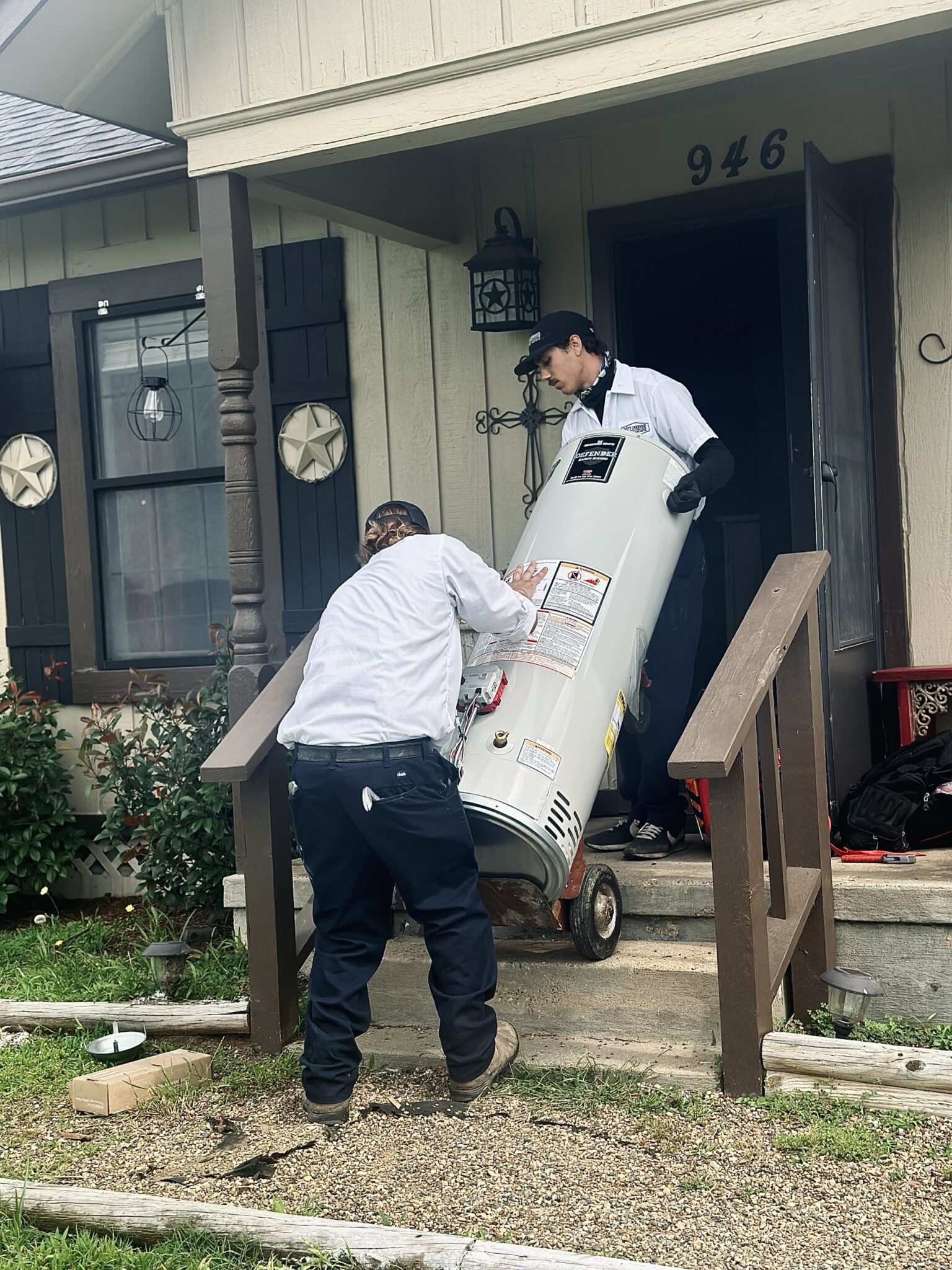Hot water is something we often take for granted until it’s gone. A water heater is the unsung hero of modern homes, quietly providing hot water for showers, dishes, and laundry. But when you encounter water heater problems, life gets inconvenient quickly.
Today, we at Underwood Plumbing & Septic will discuss common water heater issues, how to handle them, and when it’s time to call in the pros.
When Your Water Heater Needs Attention
Your water heater usually gives you a heads-up before it fails completely. Pay attention to these signs:
- Inconsistent Water Temperature: If your water switches between hot and cold or never gets hot enough, it’s time to investigate.
- Strange Noises: Popping, crackling, or rumbling sounds from the tank could mean there’s sediment buildup.
- Leaks or Visible Damage: Look for rust, corrosion, or water pooling around the base of the unit.
- Short Hot Water Supply: If your showers keep getting shorter because the hot water runs out, your heater might be struggling to keep up.
- Old Age: Traditional tank water heaters last 8–12 years, while tankless models can go up to 20 years with good maintenance.
Catching these issues early can save you from costly repairs or replacements down the road.
What’s Wrong with My Water Heater
Water heaters break down for various reasons. Here are the most frequent problems:
No Hot Water
- The heating element (for electric units) might be faulty.
- Gas models could have a pilot light issue.
- A malfunctioning thermostat could also be the culprit.
- Sediment buildup might be interfering with the system.
Not Enough Hot Water
- Your water heater might be too small for your household.
- Thermostat settings could need adjustment.
- Sediment in the tank might be taking up space.
- It could signal a potential mix-up between hot and cold water lines.
Leaks
- Corrosion inside the tank can create holes.
- Connections or valves might be loose.
- Excess pressure in the tank can lead to leaks.
- The tank lining may have deteriorated over time.
Smelly or Discolored Water
- Bacteria in the tank can cause odd smells.
- A corroded anode rod might discolor the water.
- Rust in the tank or pipes can also be to blame.
Weird Noises
- Sediment buildup can cause popping sounds.
- Loose parts or connections might rattle.
- Heating elements with scale buildup can make strange noises.
Now that you know what could be wrong, let’s talk about what you can do to fix these issues yourself.
Easy Hot Water Heater Fixes
Before you call a plumber, you can try a few basic troubleshooting steps:
- Check the Power or Gas Supply: For electric heaters, make sure the circuit breaker hasn’t tripped. For gas heaters, confirm that the pilot light is lit and the gas supply is turned on.
- Adjust the Thermostat: Set it between 120°F and 140°F and wait a few hours to see if the water heats up.
- Flush the Tank: Turn off the power or gas and shut off the water supply. Attach a hose to the drain valve to let the water drain until it runs clear. Once finished, close the valve, refill the tank, and restore power.
- Inspect for Leaks: Look for drips around connections and valves. Tighten loose fittings or replace corroded parts as needed.
- Test the Heating Elements (Electric Units): Turn off the power and remove the access panel. Use a multimeter to check for continuity in the heating elements, and if you find any faults, replace the damaged components.
- Replace the Anode Rod: Locate the anode rod on top of the tank. Use a wrench to remove it, and if it’s heavily corroded, replace it with a new one.
These steps can often resolve minor issues. If you’re not comfortable handling these tasks, don’t hesitate to call a professional
When to Call a Professional Water Heater Company
Sometimes, you need an expert to step in. Here’s when it’s best to call a plumber:
- Persistent Leaks: You’ve tightened everything, but the water keeps pooling.
- No Hot Water: If troubleshooting doesn’t work, the issue could be more complex.
- Loud Noises: Popping or banging sounds that persist after flushing might mean internal damage.
- Rusty Water: Consistently discolored water often signals corrosion inside the tank.
- Frequent Breakdowns: If repairs are becoming a habit, it might be time for a new unit.
- Gas or Electrical Problems: Leave these to the pros for safety reasons
Finding an Expert for Water Heater Repair in Bonham, TX
When water heater troubles strike in Bonham, TX, Underwood Plumbing & Septic is the go-to choice. We provide expertise about plumbing problems, big or small, and prioritize a customer-first approach.
With years of hands-on experience, we’ve seen and fixed it all—from simple repairs to complex installations. Whether it’s an emergency repair or routine maintenance, you can trust us to restore your hot water quickly and effectively.
Get Professional Plumbing and Septic Care from Underwood Plumbing & Septic!
Don’t let plumbing or septic problems disrupt your day—Underwood Plumbing & Septic in Bonham, TX, is here to help! With our skilled team and top-notch service, we’ll handle everything from clogged drains to septic maintenance, ensuring your system runs smoothly.
Whether you need urgent repair or routine upkeep, we’ve got you covered. Give us a call today and experience dependable plumbing and septic care from a local team you can trust!
Call (903) 474-2658 to contact Underwood Plumbing today and schedule your water heater services!

